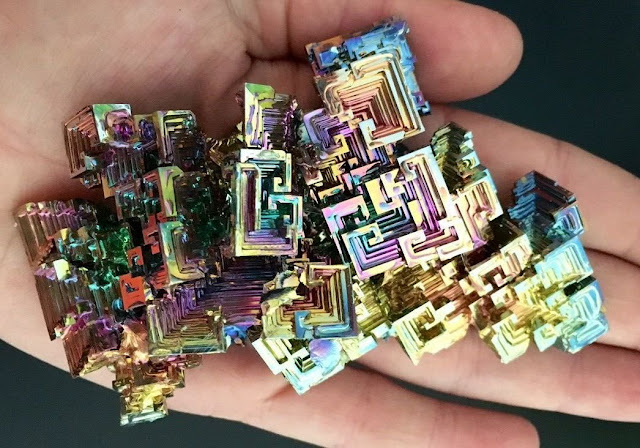The Role of Bismuth in Modern Medicine and Healthcare
 |
| Bismuth |
Bismuth, a naturally occurring heavy metal, has been used for centuries in traditional medicine. Its therapeutic properties have been well documented in ancient medical texts, and it has been used to treat a variety of ailments ranging from digestive disorders to skin infections. In modern medicine, bismuth continues to play a significant role in healthcare, with its unique properties and benefits being explored in various fields of medical research.
One of the most well-known
applications of bismuth
in modern medicine is in the treatment of gastrointestinal disorders. Bismuth
subsalicylate, the active ingredient in products such as Pepto-Bismol, is
commonly used to treat diarrhea, indigestion, and other digestive issues.
Bismuth has been shown to have antimicrobial and anti-inflammatory properties,
which help to soothe the digestive system and prevent further damage to the
gastrointestinal tract. Bismuth subsalicylate is also effective in treating
peptic ulcers, which are caused by bacterial infections in the stomach.
Bismuth has also been used in the
treatment of Helicobacter pylori infections, which are a major cause of peptic
ulcers and gastritis. The use of bismuth compounds in combination with
antibiotics has been shown to be highly effective in eradicating these
bacterial infections. Bismuth can also help to alleviate the symptoms of other
inflammatory bowel diseases such as Crohn's disease and ulcerative colitis.
In addition to its use in
treating digestive disorders, bismuth
has also been explored as a potential treatment for a variety of other medical
conditions. Bismuth compounds have been shown to have anti-cancer properties,
with studies suggesting that they may be effective in preventing the growth and
spread of certain types of cancer cells. Bismuth has also been used in the
treatment of rheumatoid arthritis, with studies showing that it can help to
reduce inflammation and pain in affected joints.
Another area in which bismuth has
been investigated is in the treatment of infections caused by
antibiotic-resistant bacteria. The emergence of antibiotic-resistant bacteria
is a major concern in modern medicine, as it makes it difficult to treat many
common infections. Bismuth compounds have been shown to have antimicrobial
properties that are effective against a range of bacteria, including some that
are resistant to antibiotics. This makes bismuth an attractive candidate for
the development of new antimicrobial agents.
Bismuth
has also been used in diagnostic imaging, particularly in the form of bismuth
subsalicylate. This compound is opaque to X-rays and can be used to help
visualize the gastrointestinal tract during diagnostic procedures such as
barium X-rays. Bismuth compounds have also been explored as contrast agents in
magnetic resonance imaging (MRI) and computed tomography (CT) scans. These
applications of bismuth in imaging have the potential to improve the accuracy
of diagnostic procedures and allow for earlier detection of medical conditions.
The use of bismuth in medical
implants is another area of research that is gaining attention. Bismuth alloys
have been shown to have excellent biocompatibility, making them ideal for use
in medical implants such as stents and orthopedic implants. Bismuth is also
being investigated as a potential material for use in tissue engineering, with
studies suggesting that it may be useful in the development of scaffolds for
tissue regeneration.
Despite its potential benefits,
the use of bismuth in medicine is not without its risks. Bismuth toxicity can
occur with prolonged exposure, particularly in the form of bismuth subnitrate,
which was historically used as a treatment for syphilis. Symptoms of bismuth
toxicity include gastrointestinal distress,



Comments
Post a Comment